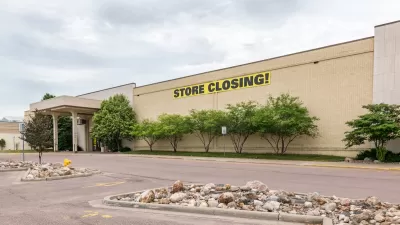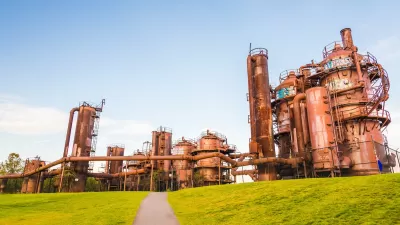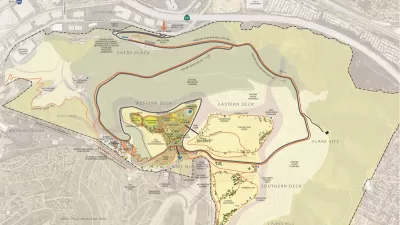The idea of tuning toxic or polluted sites into parks has been creating new green spaces in cities throughout the country. It's also re-starting the real estate market.
This post from the American Society of Landscape Architects' The Dirt blog explains.
"'The U.S. caused this real estate crisis with its housing policy. There were no down payment requirements, easy credit, and lots of capital moving into non-performing assets.' As a result, the federal government had to move in with $10 trillion investments and recovery programs ("real estate backstopping") to hold off further economic decline. To counter this trend, surplus land must be redeveloped as green space. Cities large or small can use green spaces as an "economic multiplier" that not only creates green infrastructure but also helps developers get developing again. "Parks can help unlock the real estate market." Also, tearing down underperforming, vacant housing can create wealth. "Land without buildings are still assets." If real estate entrepreneurs and parks managers collaborate on identifying opportunities, these types of program could not only lead to a "stock market explosion" but also make communities more livable."
FULL STORY: Solving the Real Estate Crisis with Parks

Planetizen Federal Action Tracker
A weekly monitor of how Trump’s orders and actions are impacting planners and planning in America.

Map: Where Senate Republicans Want to Sell Your Public Lands
For public land advocates, the Senate Republicans’ proposal to sell millions of acres of public land in the West is “the biggest fight of their careers.”

Restaurant Patios Were a Pandemic Win — Why Were They so Hard to Keep?
Social distancing requirements and changes in travel patterns prompted cities to pilot new uses for street and sidewalk space. Then it got complicated.

Platform Pilsner: Vancouver Transit Agency Releases... a Beer?
TransLink will receive a portion of every sale of the four-pack.

Toronto Weighs Cheaper Transit, Parking Hikes for Major Events
Special event rates would take effect during large festivals, sports games and concerts to ‘discourage driving, manage congestion and free up space for transit.”

Berlin to Consider Car-Free Zone Larger Than Manhattan
The area bound by the 22-mile Ringbahn would still allow 12 uses of a private automobile per year per person, and several other exemptions.
Urban Design for Planners 1: Software Tools
This six-course series explores essential urban design concepts using open source software and equips planners with the tools they need to participate fully in the urban design process.
Planning for Universal Design
Learn the tools for implementing Universal Design in planning regulations.
Heyer Gruel & Associates PA
JM Goldson LLC
Custer County Colorado
City of Camden Redevelopment Agency
City of Astoria
Transportation Research & Education Center (TREC) at Portland State University
Camden Redevelopment Agency
City of Claremont
Municipality of Princeton (NJ)





























